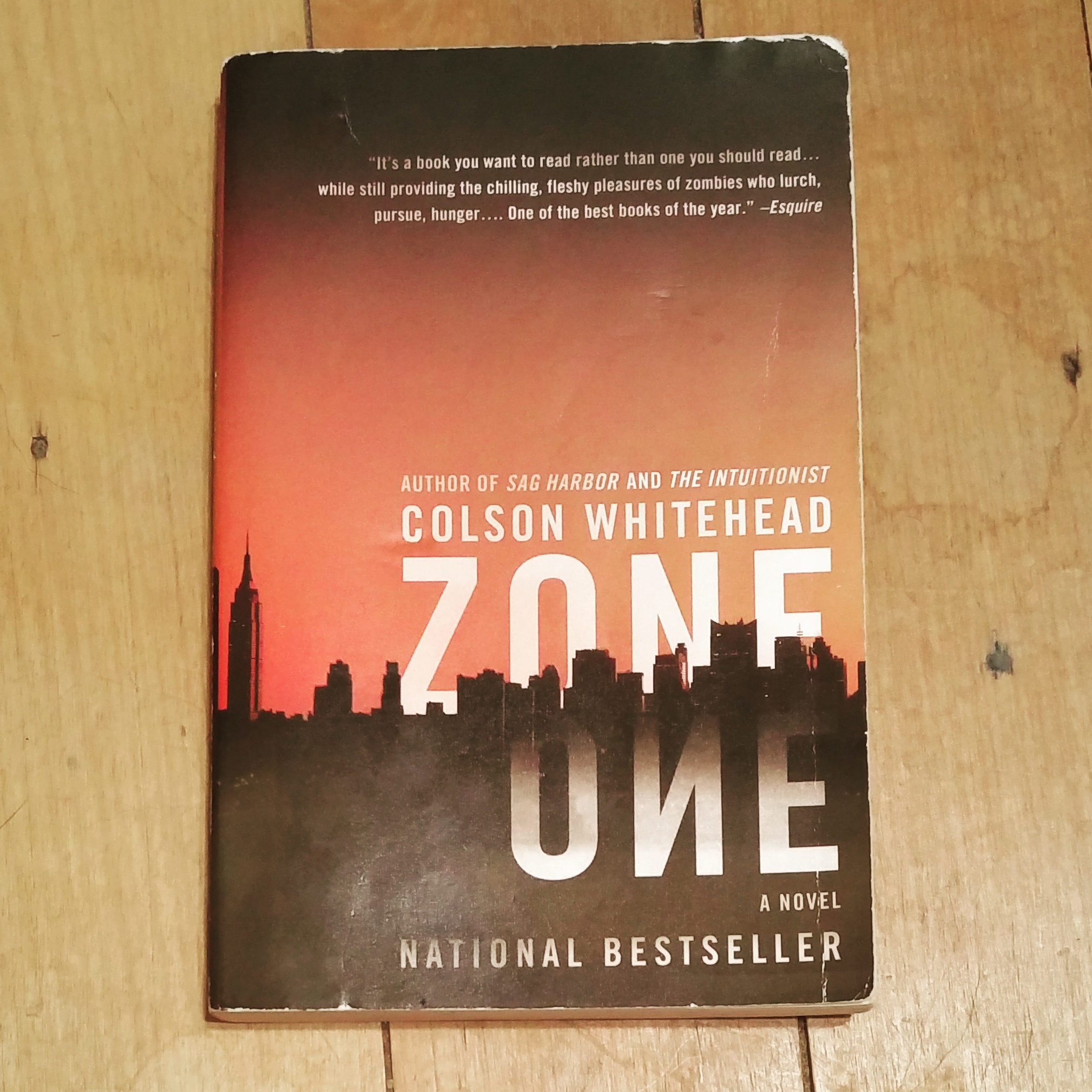Zone One isn’t so much sci-fi as apoca-lit. Whitehead uses the zombie apocalypse to examine humanity, what we do when we’re pushed to the brink, and the capacity for the government to regain control, assert their systems, and categorise everything. So we have paperwork, and corporate sponsors. We have Post Apocalypse Stress Disorder – PASD – and psychologists in a government bunker gleefully writing the DSM-V Post-Apocalypse Revised Edition. There are no plucky mavericks shooting zoms in this universe. There are regulations. There are duty rosters.

The action, such as it is, takes place over three days when a clean-up crew of three moves through the titular Zone One of Manhattan, clearing out the corpses and the stragglers. But this is lit-fic; the actual plot is more or less a backdrop on which the story is hung. Our hero Mark Spitz spends a lot of time in thought, reminiscing about Last Night when the shit hit the fan, or the people he’s met along the way. Characters flit in and out of his mind. Some die, some disappear. If you’re here for action, you might want to try another book. In lit we don’t have action. In lit we have Proust. We have slow-burn tension. This isn’t everyone’s idea of a good time.
But this is me you’re talking to. I actually read The Mysteries of Udolpho. I was expecting sci-fi and zombie-killing and interpersonal drama, and I didn’t get much of any of that, but I am nevertheless happy because this is a good book. Some of the lines fall flat, but for the most part the prose is on-point, each word in its place. Whitehead signposts future events in a way that prolongs tension over 50 pages. What was that character doing? Who was hurt at this particular point in time? Sometimes you find out, sometimes you don’t. The tension stays with you even in the quiet, safe moments, like the other shoe is about to drop.
He has a particular skill of making you fond of minor characters, as if you, like some unnamed extra in the unfolding horrors, are clinging to whatever warm body you can find. I’m reminded of the faces in Junkie, who drift in and out of the narrative; like in Junkie, some of their fates will sting.
Being lit, it’s about the nature of humanity and how we view one another, about the City as a being, about civilisation, about the treacherous undercurrent of despair. These soldiers and sweepers get drunk at an old Chinese place on their nights off; they only scavenge items from Official Sponsors; they pay attention to the gossip-news from other settlements. There’s a woman in Italy, a porn star as-was, who became a zom-killing heroine. In an action movie, she’s the star. But this is lit, so she’s a backdrop, a pin-up peddled across the world as an aspirational, motivational figure.
It’s the apocalypse, and what you have is your head. There is the Threat and there is the Darkness, and you are alone in your head with the memories and the fear and the spectre of the Future. On the one hand there is the American Phoenix, the Hope of the Future. On the other, there is the crushing pressure of the vast hordes of the dead. Throughout the novel there is a thread that remains more or less unsaid, but ever-present: that perhaps the Phoenix cannot burn bright enough.
⭐⭐⭐⭐
Purchase via this affiliate link to support the blog